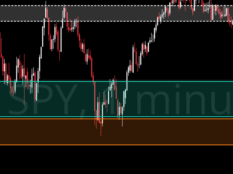Crypto Companies Leaving The United States
It seems like crypto companies are feeling a little claustrophobic in the regulatory maze of the United States. The consequences of the SEC's enforcement actions have led many companies and investors to seek greener pastures in jurisdictions outside the US that offer clearer guidelines and a supportive environment for the digital asset industry. Regions such as Asia, the Middle East, and Europe are emerging as attractive destinations for crypto to thrive due to their progressive regulatory frameworks and genuine support for innovation in the industry. This diversification away from the US poses a significant challenge to the country's status as the global innovation capital.

For instance, Hong Kong's Securities and Futures Commission (SFC) has been proactive in ensuring better access to crypto investments for retail investors through a new licensing regime. Dubai has established the world's first independent regulator for virtual assets, covering various licensed activities. Europe has also made strides with the Markets in Crypto Assets (MiCA) framework, providing regulatory clarity and guidance.
The Need for Global Web3 Collaboration
Blockchains aren't the only entities that need to learn to work together. The repercussions of the SEC's actions extend beyond US borders, affecting investors throughout the global Web3 ecosystem. To foster a thriving crypto ecosystem, regulators worldwide must collaborate and develop a responsible framework. Countries like the UAE and Hong Kong have already announced plans to strengthen their financial cooperation and work together on regulating virtual assets. This collaborative approach showcases the friendly stance of these jurisdictions towards crypto and highlights the importance of cross-border discussions for a borderless technology like blockchain.

Options 101 Series: https://pennybo.is/OptionsTradingPlaylist
Is This Just The Start?
It is expected that more US-based Web3 companies will continue to expand or even relocate overseas, while investors seek regulatory clarity in other jurisdictions. The legal battles between the SEC and industry participants are likely to be protracted, leading to market uncertainty. As a result, venture capital firm a16z has announced plans to open their first international office in London, citing a more predictable business environment as a deciding factor. Unless the US can offer transparent and balanced regulation, it risks losing its position as a leader in Web3 innovation.
What Happened With Coinbase And The SEC?
The SEC filed a lawsuit against the US crypto giant, accusing Coinbase and its parent company, CGI, of violating securities laws by acting as an unregistered broker for its main crypto trading platform, Coinbase Prime, the Coinbase Wallet, and its staking-as-a-service platform. The SEC alleges that Coinbase allowed the trading of tokens that should be classified as securities.

Binance vs The SEC
The SEC's lawsuit against Coinbase follows its recent legal action against Binance, the world's largest crypto exchange, for operating illegally in the US. The regulatory scrutiny faced by these major players in the crypto industry has led to significant financial consequences, with over $790 million reportedly withdrawn from Binance and its US affiliate since the lawsuit was filed.
13 Tokens Including SOL, MATIC, SAND Targeted By The SEC
In the lawsuit, the SEC identifies 13 tokens offered for trading on Coinbase that it considers to be investment contracts and therefore securities. These tokens include Solana (SOL), Axie Infinity (AXS), Polygon (MATIC), The Sandbox (SAND), and the "Chiliz" (CHZ) token operated by Socios, among others.
The BRICS Alliance and the US Dollar
In addition to the challenges within the crypto industry, the formation of the BRICS alliance, consisting of Brazil, Russia, India, China, and South Africa, is another factor impacting the US dollar. The alliance has received applications from 25 countries, including oil-rich nations that may demand payment in BRICS currency instead of the US dollar for their exports. If more countries begin trading with the BRICS currency, the global reserve status of the US dollar could be at risk. This shift could have profound implications for the US economy, potentially leading to job cuts and a realignment of the global geopolitical system.

What Do We Do Next As Investors?
The US finds itself in a challenging position in the financial aspect, with the crypto industry seeking more favorable jurisdictions and the potential loss of the US dollar's global reserve status due to the emergence of the BRICS currency. To maintain its financial edge, the US needs to address the concerns of crypto investors and industry participants by establishing a clear and collaborative regulatory framework. Failure to do so may result in the US losing its status as the global leader in innovation and suffering the consequences of a weakened US dollar. As traders we can prepare to trade both the Ups and Downs, and practice Risk Management. If you want to be better prepared to take on the market, check out our Free Trading Discord below!!
Free Trading Discord: https://discord.gg/pennybois



